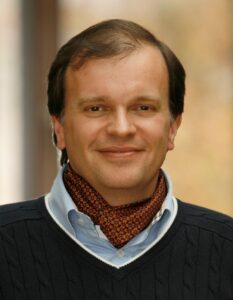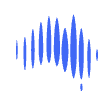
Speaker: Professor Andrej Kral
Date: Tuesday 27 March
Time: 2.00pm – 3.30pm
Location: Level 1, Talavera Road, Macquarie University
Agenda:
2.00pm – 2.05pm – Welcome
2.05pm – 2.45pm – Presentation
2.45pm – 3.00pm – Q & A
3.00pm – 3.30pm – Networking & Refreshments
Abstract:
Outcomes of cochlear implantation are characterized by extensive variability. Part of this variability may be related to variations in the form of the cochlea. While the cochlear function is related to the biophysical properties of the basilar membrane, the cochlear microanatomy is characterized by extensive variation in size and form (1). This significantly influences the outcome of cochlear implantation, particularly the implantation forces and the resulting intracochlear trauma (2). However, current imaging technologies provide only very rudimentary information on the cochlear form and size. To overcome this difficulty, an analytical model of the cochlea is required that allows to approximate not only the size but also the detailed cochlear form out of the few parameters that can be obtained in human cochlear imaging. We analyzed the 3D cochlear form in 108 corrosion casts and 30 µCTs from human donors at microscopic resolution. Based on these data we developed an analytical 3D model of the human cochlea that can provide the information on the cochlear form out of only 4 measured parameters (3). The result was validated using the “leave one out” cross-validation and showed the high precision well within ±1 mm.
The outcome of this endeavor is not only of critical importance for clinical applications, but also for understanding of the origins of biological form. Our data demonstrate that the cochlear form cannot have an acoustic function, as previously speculated. Rather the individual variations of the form result from spatial constraints in the crowded human temporal bone (3).
Supported by Deutsche Forschungsgemeinschaft (Exc. 1077) and Advanced Bionics European Research Center, GmbH.
References
(1) Avci E, Nauwelaers T, Lenarz T, Hamacher V, & Kral A, 2014: Variations in microanatomy of the human cochlea. J Comp Neurol 522:3245-3261.
(2) Avci E, Nauwelaers T, Hamacher V, & Kral A, 2016: Three-Dimensional force profile during cochlear implantation depends on individual geometry and insertion trauma. Ear Hear 38(3):e168-e179.
(3) Pietsch M, Aguirre Dávila L, Erfurt P, Avci E, Lenarz T, & Kral A, 2017: Spiral form of the human cochlea results from spatial constraints. Sci Rep 7(1):7500.
Bio:
Andrej Kral was born in Bratislava, studied general medicine at the Comenius University (MD 1993, PhD 1998). His first research position was at the Institute of Pathological Physiology (1992 – 1995). In collaboration with the Mathematical Institute (Prof. V. Majernik) he worked on computer models of neuronal networks. In 1995, at the Institute of Sensory Physiology, J.W.Goethe University, Frankfurt am Main (Head: Prof. R. Klinke) the focus of research moved to cochlear implants. He was appointed associate professor of physiology (“Priv.-Doz.”) at J.W.Goethe University in 2002. 2004-2009 he was Professor of Neurophysiology at the Institute of Neurophysiology, University of Hamburg. Since 2009 he has been Chair and Professor of Auditory Neurophysiology at the Medical University Hannover and the director of research of the ENT clinics. Andrej Kral leads the Dept. of Experimental Otology and the Joint Institute of AudioNeuroTechnology. Since 2004 he has been Adjunct Professor of Neuroscience and Cognition at The University of Texas at Dallas, USA and since 2017 member of the National Academy of Science Leopoldina. The focus of research includes neuroscience of deafness, cochlear implants, auditory development, brain plasticity, cross-modal reorganization and neuroprosthetic stimulation. The research has been published, among others, in New England Journal of Medicine, Science, Lancet Neurology, Nature Neuroscience, Trends in Neuroscience, Brain, Journal of Neuroscience and Cerebral Cortex, he gave more than 150 invited talks at international conferences and research institutions in US and Europe. Together with A.N.Popper and R.R.Fay he edited the volume of the Springer Handbook of Auditory Research on Deafness (vol. 47).
The lab has received funding from German Research Society (DFG), Common Scientific Conference Germany, State of Hamburg and State of Lower Saxony, NIH, EU and cochlear implant industry.
Who should come: hearing, speech and language researchers and clinicians, cognitive scientists, psychologists, researchers in aging health and health care professionals.
Network: Learn from one another and see what collaboration opportunities are available.
Registration: Entry is free and open to the public. Please register by Monday 19 March 2018 to louise.dodd@mq.edu.au





